Bangladesh's Kamaruzzaman sentenced to death
- Published
The BBC's Sabir Mustafa details the significance of the ruling
A prominent leader of Bangladesh's opposition Jamaat-e-Islami party has been sentenced to death by the country's war crimes tribunal.
Muhammad Kamaruzzaman was found guilty on five out of seven counts of torture and mass murder committed during the 1971 war of independence.
The tribunal was set up in 2010 to try people accused of collaboration.
Kamaruzzaman, who denied the charges and said his trial was politically motivated, is set to appeal.
Jamaat says the government is using the trials to curb opposition activities ahead of elections due next year.
International rights groups, meanwhile, say the tribunal falls short of international standards.
Street battles
In a packed Dhaka court room, Kamaruzzaman - the assistant secretary-general of Jamaat - was convicted of mass killings, rape, torture and kidnapping, said Attorney General Mahbubey Alam.
He was found guilty of masterminding what the prosecution described as one of the bloodiest single episodes in the independence war - the killing of at least 120 unarmed farmers in the remote northern village of Sohagpur which subsequently became known as the "Village of the Widows".
Three women widowed as a result of the killings testified against Kamaruzzaman during his trial. They described how he led Pakistani troops to the village and helped them to line up and execute the farmers.
The BBC's Salman Saeed, who was in court, says Kamaruzzaman looked tense throughout the proceedings, and when the verdict was announced he stood up to declare it was the "wrong judgement".
"History will not forgive anyone," he said. "History will put everyone in the dock."
Thursday's announcement of the verdict and death sentence prompted cheers of celebration from crowds gathered outside, says the BBC's Masud Khan in Dhaka.
Kamaruzzaman, who would have been about 18 during Bangladesh's secession war, was charged in August 2010, a month after being arrested in a separate criminal case.
He was accused of being a key organiser of the al-Badr, an auxiliary force of the Pakistani army which killed Bangladeshi intellectuals during the 1971 conflict.
His conviction comes at a testing time for Prime Minister Sheikh Hasina, who has made prosecution of 1971 war crimes one of her government's key goals.
Analysts say the death sentence will only exacerbate an already febrile situation in a country where police and Islamist protesters have this week been fighting deadly battles on the streets of the capital Dhaka.
The umbrella organisation behind the protests - of which Jamaat is a part - is calling for the introduction of more Islamic laws, and has shown it can easily mobilise vast numbers onto the streets.
Allegations denied
Nine senior figures from Jamaat have been among 12 people charged with war crimes by the tribunal.
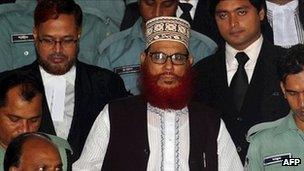
Jamaat leader Delwar Hossain Sayeedi was sentenced to death for war crimes in February
Jamaat, the country's largest Islamist party, was opposed to Bangladeshi independence but denies any role in war crimes committed by pro-Pakistan militias.
All those accused of war crimes have denied the charges against them. The convictions of three leading Islamists - including Jamaat leader Delwar Hossain Sayeedi, who was sentenced to death in February - sparked protests in which dozens of people were killed.
The tribunal was established by the government in 2010 to try Bangladeshis accused of collaborating with Pakistani forces who attempted to stop the former East Pakistan from gaining independence.
The exact number of people killed during the nine-month war of secession is unclear: official Bangladeshi figures suggest as many as three million people died, but independent researchers suggest the death-toll was around 500,000.
- Published4 September 2016
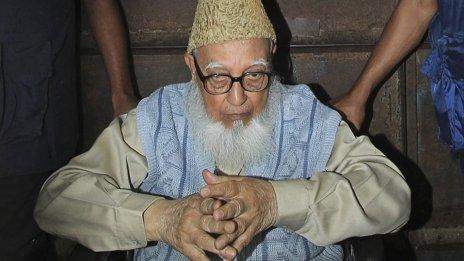
- Published21 January 2013
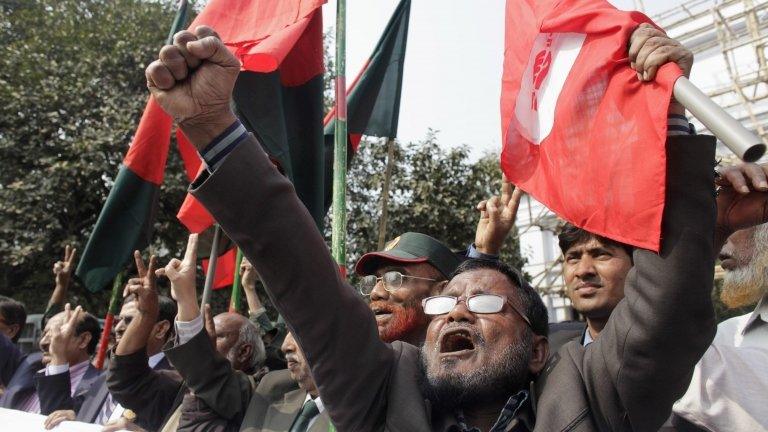
- Published6 May 2013
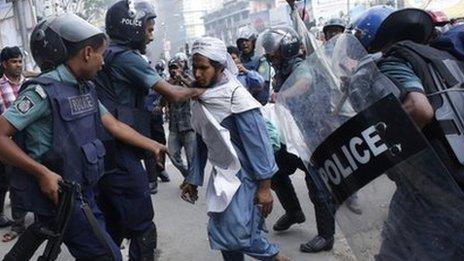
- Published3 March 2013
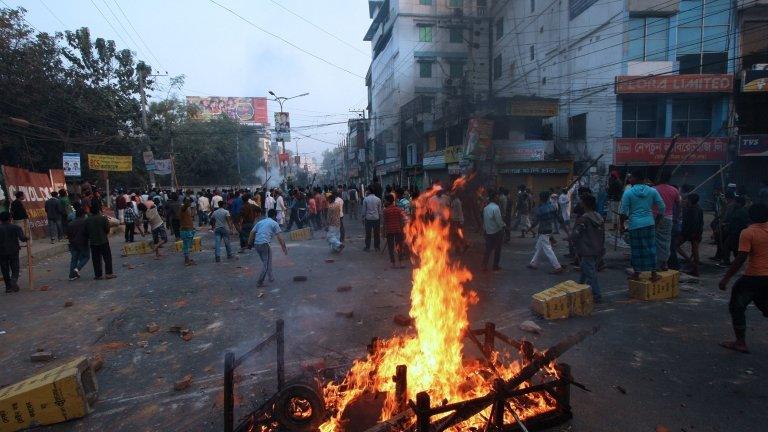
- Published28 February 2013
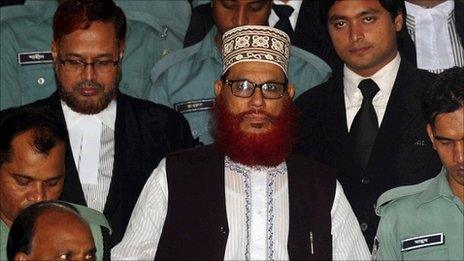
- Published31 January 2013
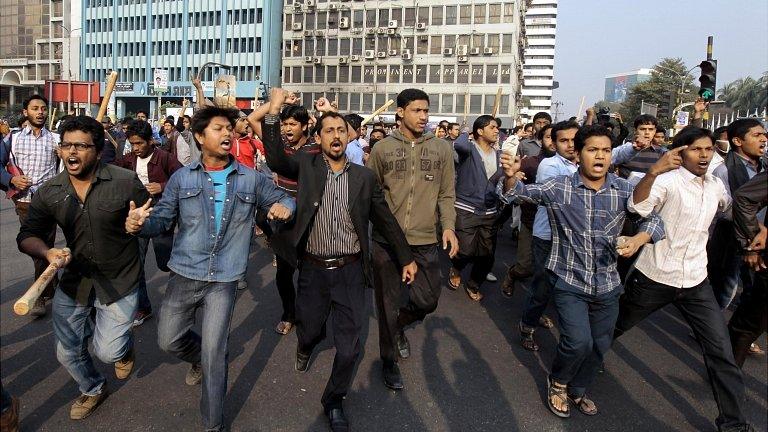
- Published26 July 2010
